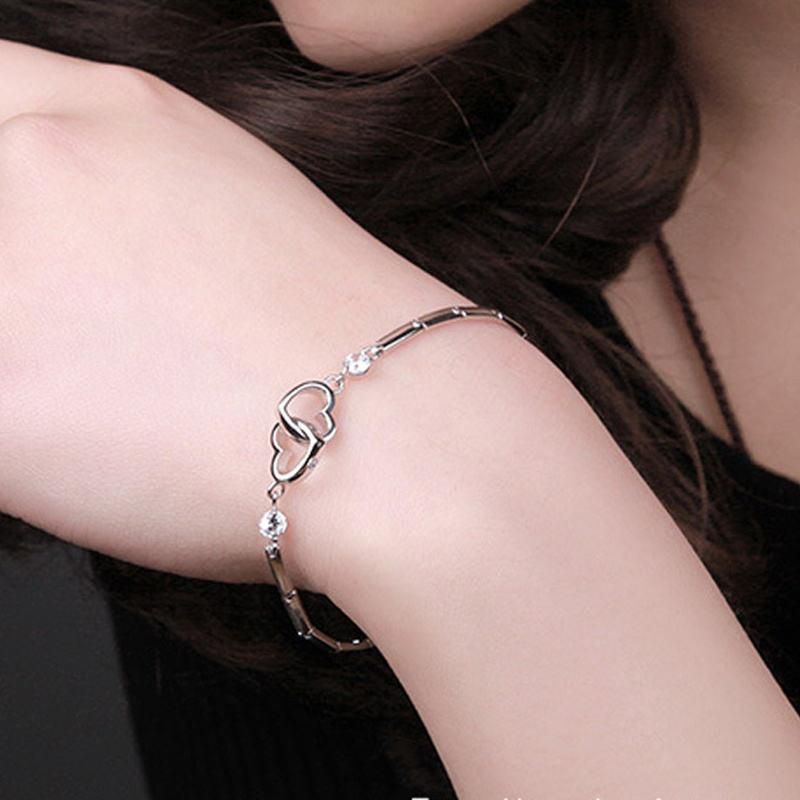Timeless Elegance
Unveiling the Truth: Does Sterling Silver Rust?
Sterling silver has long been identified for its timeless beauty and versatility in jewelry and accessories. However, some question often arises in the minds of silver enthusiasts: Does sterling silver rust? In this article, we will unveiling the truth behind sterling silver, its susceptibility to rust and the factors that affect its durability.
Understanding Sterling Silver:
Before we unravel the mystery of rust, let’s grasp the fundamentals of sterling silver. Sterling silver is an alloy composed of 92.5% pure silver and 7.5% other metals, usually copper. This combination enhances the metal’s strength, as pure silver is relatively soft. The resulting alloy boasts the dazzling appearance of silver with added durability, making it a popular choice for jewelry crafting.
Before we crack open the mystery of rust, let’s look at the composition material of sterling silver. Sterling silver is 92.5% pure silver and 7.5% other metals (copper, zinc, or other materials). This combination increases the strength of the metal, as pure silver is relatively soft. The resulting product boasts a striking and long-lasting silver finish, making it a popular choice for craft jewelry.
The Myth of Silver Rust
Contrary to common belief of silver enthusiasts, sterling silver does not rust. The term of rust is primarily associated with corrosion of iron and its alloys, such as steel. However, silver can form some tarnish. This tarnishing process is often mixed with rust. Tarnish occurs when the silver reacts with sulfur compounds in the air, forming a thin layer on its surface. These tarnishes can make silver appear unshiny, even if it is not rusty.
The Tarnishing Process
Silver tarnishing is a natural occurrence in sterling silver and is affected by a variety of external factors. Exposure to air, moisture and certain chemicals can accelerate staining. Oxygen and sulfur in the air react with the copper in sterling silver, forming silver sulfur on the surface This black or dark brown substance we often see as tarnish.
Environmental Factors
Environmental factors play an important role in the deterioration of your sterling silver. Humidity, dirt and exposure to harsh chemicals can accelerate tarnishing. If you frequently wear your silver jewelry in extremely humid climates or in the presence of air pollution, you may find that the tarnish are developing rapidly. In addition, contact with perfumes, dyes, and cleaners can cause tarnish.
Preventive Measures
While contamination is inevitable, there are several preventive measures that will slow the process and keep your fine silverware shiny. Silver jewelry stored in airtight containers or zippered bags can reduce air and moisture movement. Silica gel packets can also be placed in storage containers to drain excess moisture. Regular cleaning with soft cloths and jewelry polish can help remove tarnish and restore the shine.
Maintaining Your Sterling Silver
Proper care are necessary to keep your sterling silver looking beauty. Please avoid wearing silver jewelry when swimming, as the chlorine in pools can accelerate the tarnishing process. It is also advisable to remove your jewelry before engaging in activities that involve exposure to harsh chemicals or cleaning products. Taking these precautions will help extend the beauty of your jewelry.
Conclusion
In conclusion, the question of whether sterling silver is rust or not? The answer is sterling Silver does not rust. Sterling silver does not rust, but can tarnish. The tarnishing process happen because its composition and environmental exposure.
Understanding the tarnishing process and implementing preventative measures is key to keeping your silver jewelry shining. By adopting the right care practices, you can enjoy the timeless beauty of sterling silver for years, dispelling the myths of rusty silver and revealing the truth about the silver jewelry.
